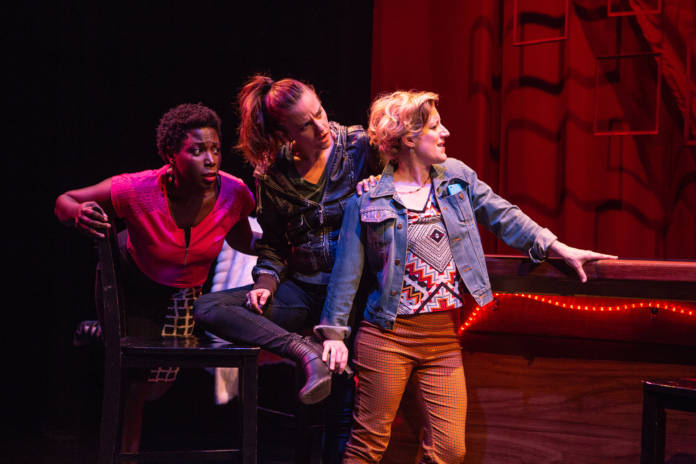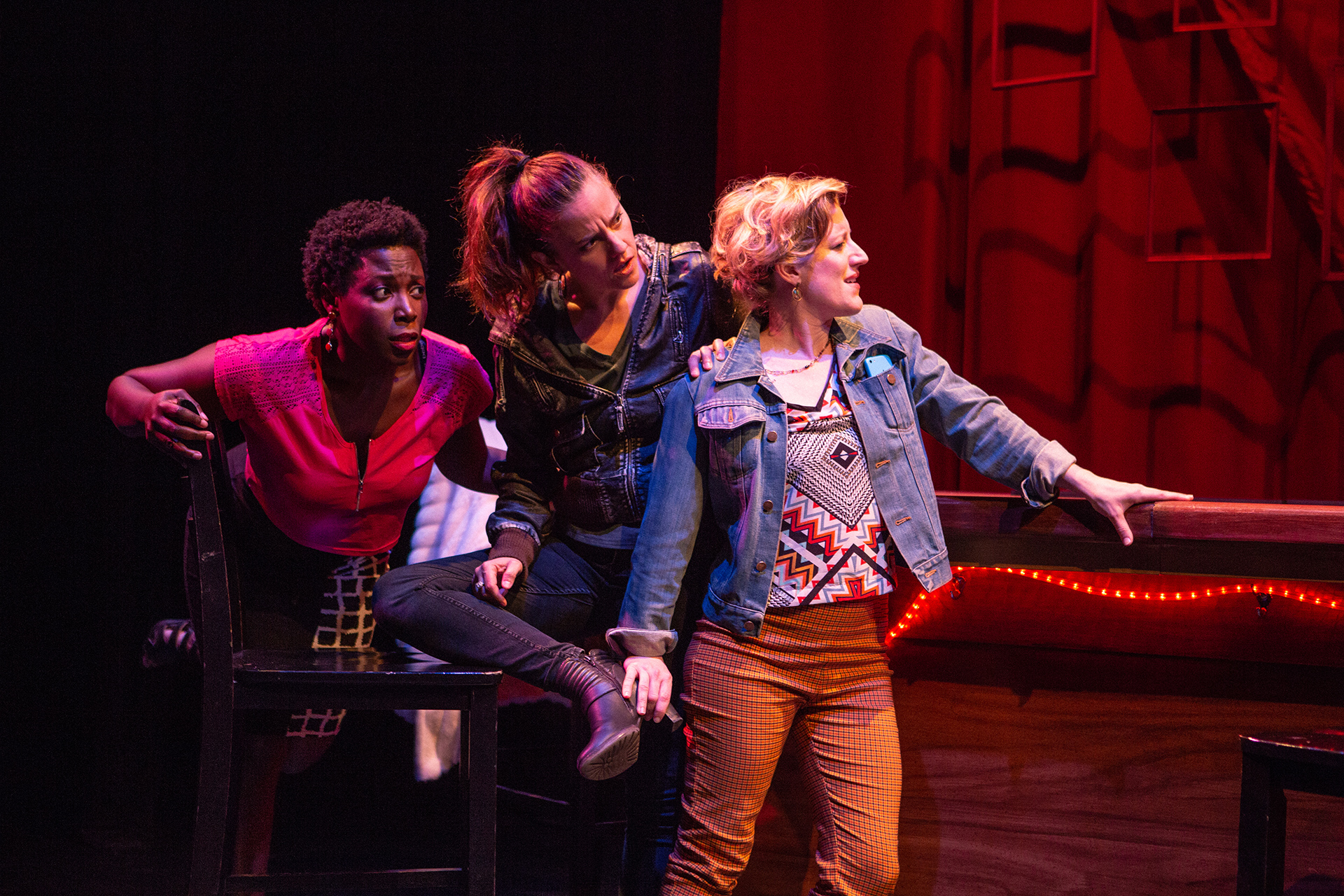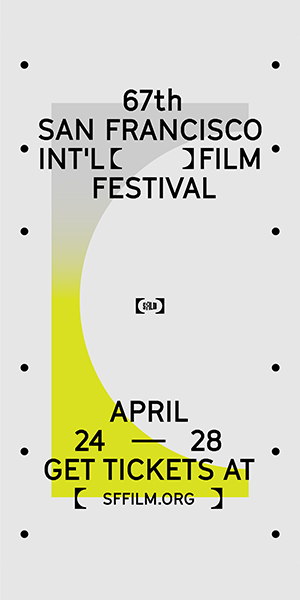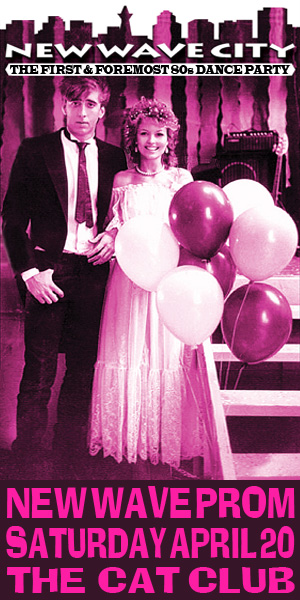The first act of The Daughters, a comedy by Patricia Cotter (at the San Francisco Playhouse through November 2), imagines the Daughters of Bilitis’ first meeting in 1955. The DOB was the first social lesbian civil rights movement in the country. It started in San Francisco, spreading with chapters in major cities around the country. In the second act of The Daughters, it’s 60 years later, 2015, at the closing night of San Francisco’s last lesbian bar, the Lexington Club.
Cotter wanted to write a play detailing some of San Francisco’s lesbian history, going from just wanting a safe place where women could meet other women and maybe learn about their rights, to, in the scene at the Lexington, some characters wondering what’s the point of even having lesbian bars.
Two of the characters in the first act are based on Del Martin and Phyllis Lyon, who started the DOB and were the first same sex couple to be married in San Francisco. Cotter also wrote a character based on writer Lorraine Hansberry—Cotter found she had subscribed to The Ladder, the DOB’s newsletter, and even wrote letters to Phyllis and Del.
For the second act, Cotter talked to people with people from the lesbian, gay, and trans communities to get different perspectives. One of the characters at the Lexington, Ani, is at a lesbian bar for the first time. She usually meets women online, and she thinks a lesbian bar is quaint: The word lesbian is “old timey.” When another woman quotes some Ani DiFranco lyrics to her, she says “I know who Ani DiFranco is—I went to Mills.”
Cotter wrote the play as a way to explore early lesbian history and how things have changed as well as for the opportunity to put a bunch of strong women characters on stage. She talked with 48 Hills about reading mimeographed copies of the DOB newsletter at an archive in Brooklyn, going to Lyon’s Castro home she shared with Martin, and what people risked in the 50s risked by going to these meetings.
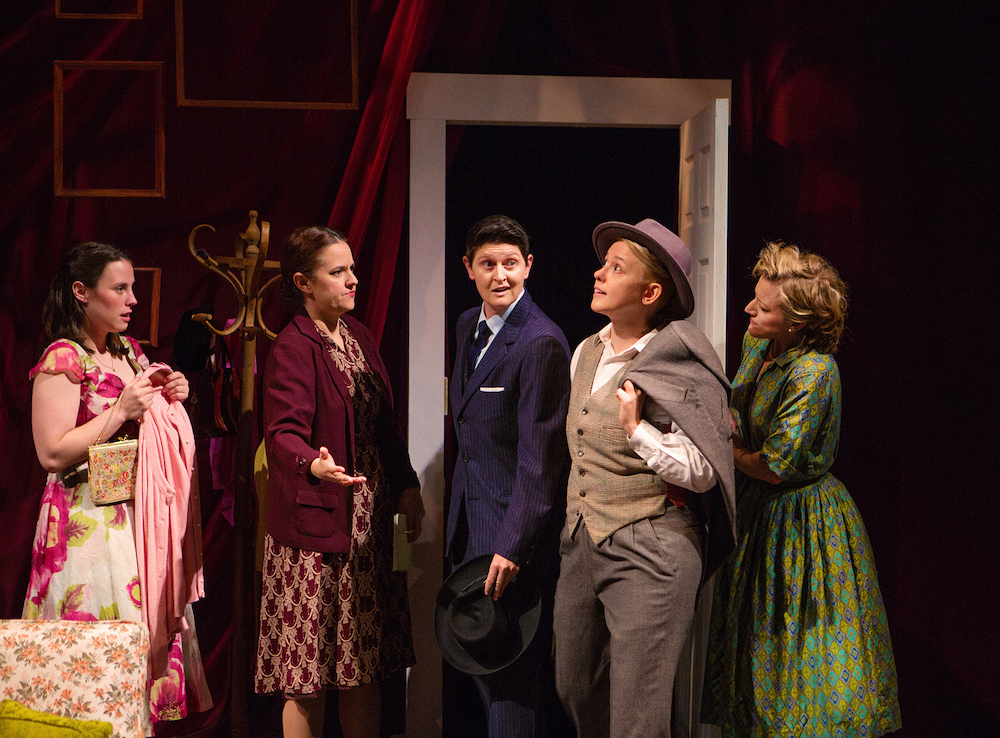
48 HILLS: What made you decide to write this play?
PATRICIA COTTER: I hadn’t seen a play or a history of my people. I just hadn’t seen it. And the more research I did on it… I mean, it’s a comedy, and I don’t know what really happened in that room, but the imagining of it was so exciting to me. It was a time that changed the world, because women wanted to meet each other. Isn’t that wild? That was the bigger impulse more than anything. Wanting to be safe and to be themselves.
Also, I feel like Phyllis and Del haven’t gotten their due as civil rights leaders. And I wanted to see a bunch of women onstage having a blast. I like writing really strong roles for women, and I thought, “Oh, this is a great opportunity.”
48H: What research did you do?
PC: I started with the book Different Daughters [by Marcia Gallo]. It’s great, and it kind of goes through the history of Daughters of Biliitis through the 60s and 70. I also went to Lesbian Herstory Archives in Brooklyn. It’s just a brownstone, and you knock on the door, and there was one woman there, kind of monitoring it, and you can stay all day. I was looking through old newsletters of the organization, the Ladder, just mimeographed, not even Xeroxed. So that was fun and a find.
I was doing interviews, especially for the second half, talking to men and women and trans women and trans men and gender-fluid people just trying to find different points of view, so it wasn’t just my point of view.
It’s a loaded topic. There’s a lot of stuff that pokes at people, which is interesting. The language is changing so quickly, and some people are put out at how things are changing. It’s like, change is change. Why not get on board with all of it? The reality is if me not being assumptive about pronouns means that I’m making other people comfortable, why is that a big deal?
48H: When you met with Phyllis Lyon, did you ask her about that first meeting?
PC: Phyllis will be 95 on November 10, so when I met her I came with my laptop. I was going to take notes, but when I met her, she was a delight, and I think she’s going to come to the show. But it felt inappropriate to grill her. I thought I’m just going to absorb this person and this energy and it was great. It was more just being in that space that she shared with Del and all that history. It was special. She was so gracious, and it was just the two of us.
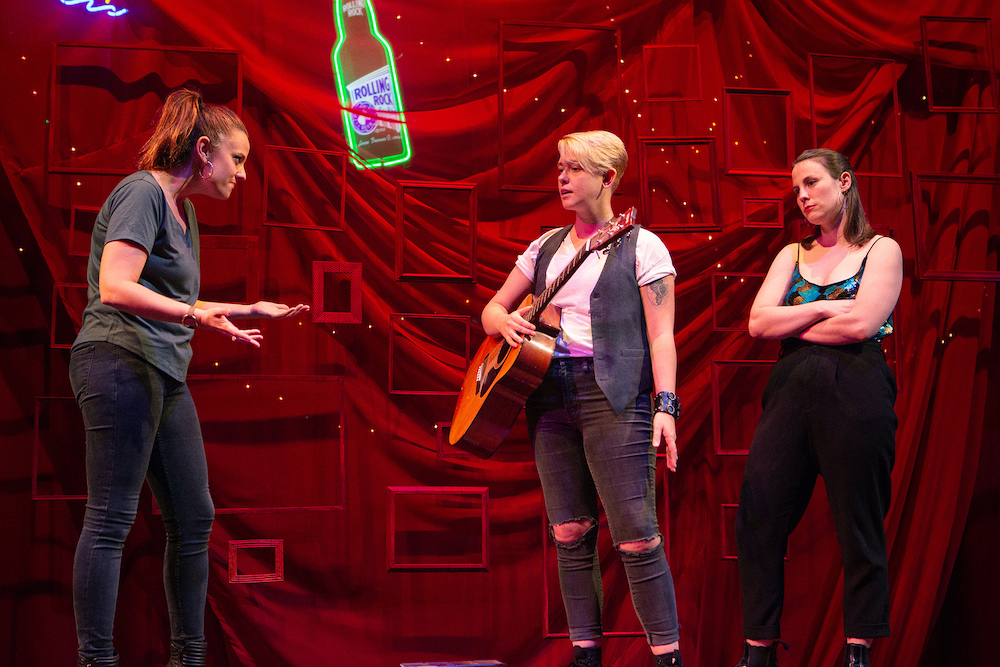
48H: What was the most surprising thing you learned doing research?
PC: Learning about that time, 1955. It was right after a lot of states started raiding the bars. It was stuff I had known, but just seeing it again.. The idea you go to a gay bar, there’s a raid, and your name is in the paper. Your address is in the paper! You lose everything. There were a lot of teachers and nurses and a lot of government people who worked at the post office.
Also there was so much shame, people didn’t know they had any rights at all, and actually you do have rights. They would charge people with things like delinquency of a minor, so if somebody was underage, everybody was in trouble even if you didn’t meet that person. Another one was conspiracy to commit sodomy. It was nuts.
One story I heard was a bunch of people got arrested, I think it was in Long Beach California, and one person called Del and said what do I do, and she said don’t plead guilty. Everyone else pled guilty, not even knowing what they were pleading guilty to. There were a couple different charges of prostitution, and they all pled guilty to that except for the one person who didn’t, and that person went home. Part of the reason the meetings were so important was to get information out so at least you know your rights. So that really struck me.
48H: Was the first meeting pretty small like in the play?
PC: The very first one, I think there were three couples, but then I couldn’t do the intimate flirting or the dancing, which I was enjoying writing. So I changed it to just one couple. They actually got a lot of work done, but a couple people dropped off because they were like, “I just wanted to be social, I’m not interested in the political part.” The first one was couples who had kind of known each other, and then opened it up, and oh my god, you had to tell strangers where you lived. There was so much risk involved. In the play, we were having the actors remember that because we’re so removed from it now. Anytime there was a knock on the door, that’s a heart-racing moment.
Then for the second act, I was interviewing people, and it was fun to hear different points of view. A lot of the stuff Ani says is basically verbatim, and there’s just the idea of that that’s the past. Of course not every young, queer women thinks that, but that is a point of view. Then I spoke to a friend of mine who’s around 30, and she said, “I wish people would identify more as lesbian, so I could meet them.”
48H: Were you thinking about the importance of bars to gay history when you wrote this?
PC: Yes. Also I think a lot of women saw their history erased. Like if every gay guy bar closed, can you imagine? It would be bedlam. There is something about it. There’s something about going where you see your people. It feels good, and it’s fun. It’s very different to go to a straight bar even if you have a corner of it.
48H: Why is this an important story?
PC: I think it’s an important story because it’s not been told. It’s lesbian history, but it’s really civil rights history and women’s history. I’ve also seen a ton of theater where we hear about the gay male perspective, and I’m a huge fan of that, but I would like to be included, and not just one character with one point but a broader narrative, and just kind of show there’s a million different ways to be a queer women. There’s not just one way.
THE DAUGHTERS
Through November 2
San Francisco Playhouse
Tickets and more info here

